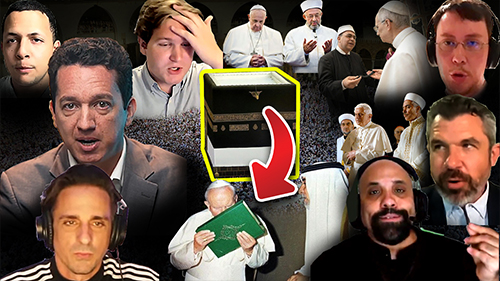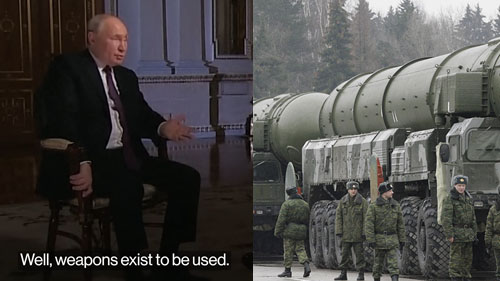| Recent Featured Videos and Articles | Eastern “Orthodoxy” Refuted | How To Avoid Sin | The Antichrist Identified! | What Fake Christians Get Wrong About Ephesians | Why So Many Can't Believe | “Magicians” Prove A Spiritual World Exists | Amazing Evidence For God | News Links |
| Vatican II “Catholic” Church Exposed | Steps To Convert | Outside The Church There Is No Salvation | E-Exchanges | The Holy Rosary | Padre Pio | Traditional Catholic Issues And Groups | Help Save Souls: Donate |  |









 " />
" /> " />
" /> " />
" /> " />
" /> " />
" />




Why Hell Must Be Eternal
Bro. Peter Dimond There is at least one main reason why Hell must be eternal. That the pains of Hell are eternal is, of course, part of the faith. Jesus makes that quite clear in numerous places (Mt. 25:41; Mark 9:44). It’s dogmatically reaffirmed by the Catholic Church. Even though people know that it’s taught in the Bible, many are still deeply disturbed by the consideration of this mind-boggling truth. They wonder how such an unimaginable punishment could be just. In response many will bring up the idea that an offense against Infinite Majesty (God) deserves infinite punishment. However, I would like to consider this issue from another angle. The following is simply my quick take on why it makes perfect sense that the pains of Hell are eternal. A primary reason that Hell must be eternal is that the only condition that matters to man is the present condition. For instance, suppose you live in a frigid area of the world. Suppose that you had heat for the past ten years, but this year catastrophe has struck your area and left you without any heat in the depths of winter. You are freezing, shivering, etc. Will the fact that you had heat for the last ten years make you happy while you are freezing this winter? No. It won’t help you at all. All that matters is that you don’t have heat this winter. It’s true to say that all that matters to you is your present condition. Likewise, suppose that you did not have heat for the past ten years, but finally got it this year. Will the fact that you did not have heat last year, and the year before, etc. make you unhappy while you sit comfortably and warmly now? No. All that matters is that you are warm and comfortable now. All that matters is your present condition. The same truth applies to everything, including to the passing pleasures desired by worldly people. (It must be pointed out that none of these passing pleasures can bring true happiness, for man was created for God and can only be fulfilled in Him. But the point holds true for these matters as well.) For instance, those who glory in their present state of great fame or great wealth or great success or great beauty are not troubled by the fact that they did not possess this ten or twenty years ago. All that matters to them is that they are famous or successful or wealthy, etc. now. All that matters to man is the present condition. Therefore, if the pains of Hell did end at some point, then at that very point the condition of the person would be free of punishment. He would suffer no pain at all. Since all that matters to man is the present condition, the end result would be that man would not be punished at all. Thus, when it is considered deeply, it is true to say that a punishment that is not eternal is, in the end, actually no real punishment at all. For if it ends at any point, then the final condition of man (which is all that will matter to him) is one without punishment. Objection: what about the punishments in Purgatory? They end at some point, but they are true punishments. The answer to this is that the Purgatorial punishments can end in no punishment (but happiness) because they are actually equivalent to loving discipline meant for our greater good. They are purifying punishments meant for God’s friends. They are meant to make a person worthy of a greater happiness and reward, not to make him experience a real and lasting condition of unhappiness. Thus, they are not punishments of the same category as vindictive punishments which God inflicts on those who die in mortal sin. But those who die in a state of mortal offense against God’s dignity must be punished in a real and vindictive way. The punishment inflicted on those who die in mortal sin is meant to pour out God’s wrath on His enemies. It’s meant to inflict a true and lasting condition of unhappiness on those who have mortally offended His dignity.
Such a punishment can only be real if the end result equals punishment, not a state of no punishment. The only way that the vindictive punishment can have an end result which equals punishment, rather than no punishment, is by an ongoing present condition of unhappiness. That’s why Hell must be eternal.Sign up for our free e-mail list to see future vaticancatholic.com videos and articles.
Recent Content
^